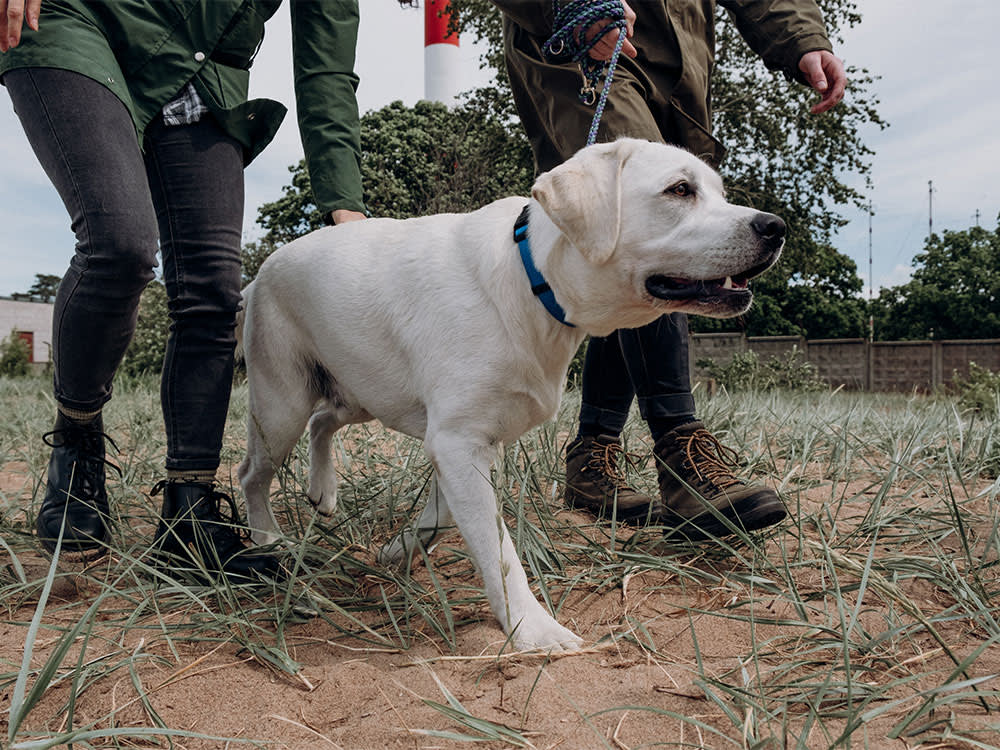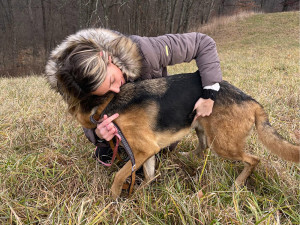Pet Detective: Improve the Odds When a Best Friend Goes Missing
Helping pet parents reunite with their lost pets.

share article

Your pet wants you to read our newsletter. (Then give them a treat.)
Pet detectives use the same investigative techniques, technologies, and strategies that police detectives and search-and-rescue technicians employ to find missing persons. “Some people think it’s a scam,” says pet detective and founder of Missing Animal Response Kat Albrecht. And for good reason — Albrecht warns that pet detective scam artists are taking advantage of desperate pet parents. For over twenty years, Albrecht and her team at Missing Pet Project have been helping pet parents reunite with their lost pets. The national nonprofit organization was founded to research the behavioral patterns of lost pets, educate pet parents on how to properly search for a lost petopens in a new tab, and educate animal shelter staff and volunteers in the science of lost pet behavior.
What does a pet detective do?
Albrecht has conducted hundreds of full-scale searches and helped reunite thousands of pet parents with their pets through consultations. Before beginning a search, Albrecht always asks her clients a few questions about their missing pets. Last sighting? Habits? Experience outdoors? Temperament? Neighbors with a grudge? She creates a personality profile that will help her determine probabilities for the missing pets across a spectrum that ranges from theft, rescue and unintentional disposal to injury, illness, death, deliberate displacement, and more.
Pet theftopens in a new tab is a common question from pet parents. People often want to believe their animal has been stolen because it means closure. “They want to stop grieving,” she says. It happens, but it is rarer than you’d think.
Barring intervention, “there are predictable patterns for how a dog or cat will act when they get free,” Albrecht explains. Those patterns dictate search strategies. Of course, it’s easier with cats. With lost dogsopens in a new tab, several x-factors, including a much greater likelihood of human involvement, make predictions more difficult. Pet detectives will utilize a variety of techniques to help locate missing pets:
Specially trained cat detection dogs can help locate lost cats.
Magnet dogs can help capture fleeing dogs.
They conduct physical searches of neighborhoods and nearby areas.
Provide advice remotely based on pet profiles.
Make use of thermal imaging to help find hidden pets.
Drone aerial searches can be conducted to get a bird’s eye view.
Trapping
How do you find a pet detective?
While some pet investigative businesses charge for services ranging from tracking to trapping, many are entirely volunteer based. On the Missing Animal Response website, pet parents can find a directory of businesses and volunteer groups which specialize in locating missing animals.
The Maryland-based Lost Animal Resource Group is an all-volunteer-based organization that tracks, finds, and humanely captures lost family pets. Their volunteers have a passion for helping families reunite with their runaway pets. “Once a trap is set for a loose pet, LARG monitors the camera 24/7. Yes, this means even in the middle of the night. We are notified by cell when there is activity, be it human, animal, or vehicle,” says LARG volunteer Stacy Williams.
Should you need to hire a pet detective, it’s essential that you have something with your pet’s scent. “Always have a scent article of your pet on hand. Hopefully, you will never need this, but should your pet ever get lost with no sightings, and a tracking dog is needed, you will need an article that smells like your pet, and your pet only.”
The most important thing to remember about lost pets is that the sooner you get out there and put up posters and share flyers with neighbors, the better your chance of getting your pet home. Pet detectives are only one piece of the puzzle. “There is a lot of pressure on you and your dog to turn up a miracle,” says Albrecht. But she sees her job as improving the odds of a search from “a needle in a haystack to a coin in a sandbox.”

Lisa Wogan
Lisa Wogan lives in Seattle and is the author of several books including Dog Park Wisdom.
Related articles
![Woman in a coat soothing a rescued German Shepherd dog in a field outside]() opens in a new tab
opens in a new tab9 Tips To Find a Lost Dog—Fast
Buddha Dog Rescue and Recovery founder Nicole Asher’s pro tips for getting your missing pup home safe.
![Douglas Thron, in his rescue pilot uniform hugging a rescued black cat to his chest outside]() opens in a new tab
opens in a new tabWe Are Now Living in the Age of Drone Animal Rescue
ASSERT is the first on the ground for emergency aid around the world.
![Golden retriever running around a local park during sunset]() opens in a new tab
opens in a new tabThe Macro Benefits of Microchipping Your Dog
Sure, microchips can feel a little 1984. But if your pup has a chip, they’re four times more likely to make it home if they get lost.
![Four dogs standing on a fallen tree surrounded by water from a flood from hurricane Fiona.]() opens in a new tab
opens in a new tabHow to Help Dogs and Cats Affected by Hurricane Fiona
Rescue organizations are in need of donations (and adoptions) after the devastating storm.




